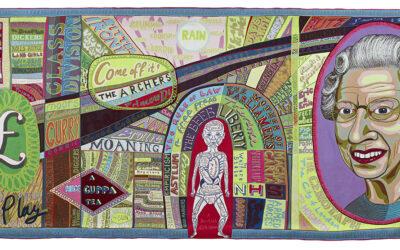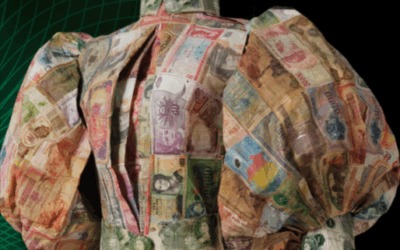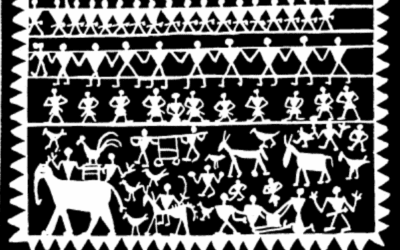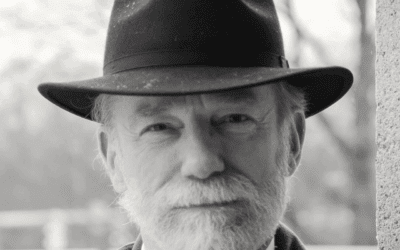The intersection of psychology and economics reveals territories that neither discipline alone can adequately map. While behavioral economics has made strides in recognizing that humans are not purely rational economic actors, it barely scratches the surface of how deeply economic systems penetrate our psychological and somatic existence. Through the lens of depth psychology, particularly Jung’s analytical psychology and contemporary trauma theory, we discover that economic structures don’t merely influence behavior but fundamentally shape consciousness, colonize the unconscious, and literally inscribe themselves in our bodies.
These observations emerged from years of clinical practice at Taproot Therapy Collective, where the impact of economic systems on psychological wellbeing reveals itself in ways that traditional therapeutic modalities consistently fail to address. When clients arrive with anxiety, depression, or relational difficulties, the economic dimensions of their suffering often remain invisible, attributed to personal pathology rather than systemic violence. Yet once we begin recognizing how capitalism operates as both a psychological and somatic force, entirely new possibilities for understanding and healing emerge.
The World Health Organization’s recognition of social determinants of health acknowledges that economic factors profoundly impact wellbeing, yet even this framework fails to capture the depth psychological dimensions of how economic systems shape the psyche. We are not merely affected by economic conditions; we are psychologically constituted by them through mechanisms that operate below conscious awareness, through processes that Jung would recognize as archetypal activation and complex formation.
The Collective Unconscious of Capitalism
Our exploration begins with The Shadow Economy, where economic structures reveal themselves as vast repositories for collective shadow material. Just as individuals repress unbearable aspects of self into the unconscious, entire societies project their collective shadows onto economic systems that then manage this repressed material through financial mechanisms. Poverty becomes a container for our collective fears of worthlessness, while wealth accumulation defends against the terror of mortality. The Bank for International Settlements tracks financial flows without recognizing them as movements of collective psychological material desperately seeking integration.
Economic bubbles reveal these shadow dynamics with particular clarity. During bubble formation, collective shadow material around limitation and scarcity gets projected onto inflating assets that assume magical, almost sacred properties. The subsequent crash forces confrontation with previously denied reality, representing nothing less than the return of the repressed. Cryptocurrency’s emergence represents a massive shadow projection of desires for liberation from traditional authority, yet its rapid replication of the exact power structures it claimed to transcend reveals how shadow material reconstellates even in supposedly revolutionary spaces.
Understanding economic systems as shadow containers suggests that financial crises are fundamentally psychological events. These are moments when repressed collective material erupts into consciousness, demanding recognition. The 2008 financial crisis forced temporary acknowledgment of the shadow banking system, those financial structures operating in darkness beyond regulatory sight. Yet the rapid return to business as usual demonstrates how quickly collective defenses reconstitute to avoid sustained shadow confrontation. We prefer the familiar pathology to the uncertain work of integration.
The Stockholm Syndrome of Economic Life
The puzzling pattern of defending systems that actively harm us becomes comprehensible through Trauma Bonding with Capital. The psychological phenomenon of trauma bonding, where victims develop emotional attachments to their abusers, maps with disturbing precision onto how individuals relate to exploitative economic systems. The National Center for PTSD documents trauma bonding patterns in interpersonal relationships without recognizing their manifestation in economic relations, though the parallels are unmistakable.
Watch how gig economy workers refresh apps obsessively, waiting for the next task, experiencing precisely the intermittent reinforcement that creates the most powerful behavioral conditioning. Or observe individuals crushed by student debt defending the very educational system that indebted them, unable to recognize their exploitation because their psychological survival depends on maintaining attachment to the system. This isn’t false consciousness but rather a sophisticated psychological defense against unbearable powerlessness.
Working-class individuals defending billionaires while struggling to meet basic needs reveals trauma bonding’s political dimensions with stark clarity. The identification with economic aggressors serves crucial psychological functions, transforming powerlessness into vicarious power through psychological merger with dominators. Social media platforms have perfected these trauma bonding mechanisms through algorithmic manipulation, creating addictive cycles that users recognize as harmful yet find themselves unable to escape. The attachment to the source of harm feels like love itself.
The Alchemy of Desire
Consumer psychology operates through processes that Jung would immediately recognize as alchemical, which we examine in The Alchemical Marketplace. Marketing and branding serve as contemporary forms of the ancient alchemical art, transforming base materials into objects of desire through psychological projection. The transformation of coffee beans worth pennies into a Starbucks experience worth dollars represents a successful alchemical operation where suffering transmutes into pleasure through the mystification of brand identity.
The Journal of Consumer Research regularly documents these transformations without recognizing their fundamentally alchemical nature. Brands function as alchemical vessels, sacred containers for transformation that hold and shape consumer projections. The logo serves as an alchemical sigil, marking successful transmutation from material to psychological gold. Luxury brands have perfected this art to an extraordinary degree, transforming modest materials into objects commanding astronomical prices through purely psychological operations that would make medieval alchemists envious.
The NFT phenomenon represents the purest expression of marketplace alchemy yet witnessed, selling nothing but psychological transformation itself. Digital files with no material existence undergo transmutation into million-dollar assets through blockchain’s alchemical seal. We are literally trading in psychological states rather than objects, revealing that value creation in late capitalism has become fundamentally an alchemical rather than material process. The marketplace has become a laboratory for the transformation of consciousness itself.
The Autonomous Forces of Money
Jung’s complex theory illuminates how money activates autonomous partial systems within the psyche, explored in Economic Complexes. A complex represents an emotionally charged cluster that can temporarily overwhelm conscious intention, and money perhaps more than any other element of modern life possesses the capacity to activate these autonomous forces with extraordinary intensity. The International Association for Analytical Psychology has documented complex dynamics clinically without fully exploring their specifically economic manifestations.
The moment financial matters arise, otherwise rational individuals become possessed by forces entirely beyond their control. Watch the generous friend become miserly when splitting restaurant bills, the confident professional freeze during salary negotiation, the prudent planner make impulsive purchases during emotional stress. Each demonstrates activation of autonomous economic complexes that completely override conscious intention, as if an alien force temporarily assumes control of the personality.
These complexes form early through childhood experiences of economic security or precarity, creating templates that organize all subsequent economic behavior. Poverty complexes persist despite radically changed circumstances, creating scarcity mindsets that no amount of accumulated wealth can dissolve. Inheritance complexes tear families apart as primitive material around fairness and favor erupts with volcanic force. Understanding economic behavior through complex theory explains why financial education so rarely changes actual behavior, since complexes operate with complete autonomy from conscious learning.
Wounds Transformed into Wealth
The contemporary phenomenon of monetizing personal trauma through coaching and wellness businesses reveals new expressions of Jung’s wounded healer archetype, analyzed in The Wounded Healer as Entrepreneur. The International Coaching Federation values this industry in the billions without recognizing it as commercialized wounded healer dynamics playing out at massive scale.
The coach who overcame addiction now selling recovery programs, the trauma survivor monetizing their healing methods, the burnout victim teaching resilience workshops all embody the wounded healer taking marketplace form. Social media amplifies these dynamics exponentially as vulnerability becomes currency and trauma narratives generate engagement. While lived experience can certainly enhance understanding, the pressure to commodify wounds for economic survival raises profound ethical questions about what happens when healing becomes a business model.
The wellness industry has transformed into a vast marketplace where wounded healers compete for clients, creating disturbing hierarchies of suffering where more dramatic trauma stories command higher prices. Multi-level marketing particularly exploits wounded healer dynamics, recruiting vulnerable individuals with seductive promises that their struggles uniquely qualify them to help others while building wealth. We must ask whether commercializing wounds serves genuine healing or simply creates new cycles of exploitation wearing the mask of transformation.
Gods of the Marketplace
Different economic systems activate entirely different archetypal patterns, revealed through Archetypal Economics. Economic theories aren’t merely technical systems but theological structures serving specific deities whether we recognize them or not. Neoliberalism embodies Hermetic consciousness with its obsession with boundary dissolution and perpetual transformation. Socialism carries Demetrian agricultural consciousness focused on collective nurture and shared harvest. Silicon Valley’s disruption mythology channels Promethean fire-stealing, while Amazon’s dominance perfectly embodies Zeusian ordering through monopolistic power.
The Cambridge Journal of Economics occasionally publishes heterodox perspectives that touch on these deeper currents without recognizing economics as what it truly is: applied theology. Understanding economic systems as archetypal activations explains why economic debates inevitably become religious wars. We’re not merely discussing resource allocation but battling over which gods should rule consciousness itself.
The conflict between environmental imperatives and growth demands represents an archetypal battle between Gaian earth-consciousness and Hermetic dissolution of all boundaries. Cryptocurrency constellates Ouranian sky-god consciousness, creating value from pure abstraction divorced from material reality. Recognition of these archetypal forces suggests that economic transformation requires not just new policies but entirely new archetypal constellations capable of holding multiple deities without becoming possessed by any single pattern.
Bodies Under Capital
The somatic dimensions of economic life, explored in The Somatic Cost of Capital, reveal that capitalism literally inhabits our flesh. Each economic system creates its own characteristic holding patterns, chronic activation states, and embodied defenses that any experienced somatic therapist can read like a map. The neoliberal body presents with unmistakable hypervigilance and complete inability to access parasympathetic rest. The gig worker’s body maintains perpetual activation, forever awaiting the next notification. The indebted student carries invisible weight visible in collapsed posture and chronically restricted breathing.
The National Institutes of Health documents stress-related illness without recognizing these as bodies literally breaking under capitalism’s demands. Class manifests somatically in ways that transcend individual psychology. Working-class bodies carry chronic inflammation from unrelenting stress while executive bodies show thoracic rigidity from years of maintaining professional composure. Women’s bodies under capitalism bear the double burden of productive and reproductive labor, manifesting as characteristic patterns of depletion that no amount of self-care can address.
Understanding economic trauma somatically reveals what bodies know and minds deny: current systems are literally making us sick. The epidemic of chronic illness, mental health crisis, and somatic dysregulation represents millions of bodies testifying that capitalism is unsustainable not just environmentally but somatically. Healing requires recognizing that every economic policy is fundamentally a somatic intervention, every market mechanism a nervous system modifier that shapes how we inhabit our own flesh.
Toward Integrated Understanding
These explorations reveal psychological dimensions of economic life operating at depths that neither conventional economics nor mainstream psychology can adequately address. We are not rational actors making calculated decisions in markets, nor are we simply irrational beings driven by cognitive biases. We are psychological beings living within economic systems that shape consciousness at every level, activate archetypal patterns beyond our awareness, create traumatic bonds we mistake for love, and inhabit our very bodies in ways we rarely recognize.
The American Psychological Association has begun recognizing psychology’s relevance to economic policy, yet these efforts remain tragically limited to behavioral nudges rather than deep structural understanding. What we desperately need is recognition that economic systems are psychological systems, that markets are theaters for unconscious material, that financial structures manage collective shadows, and that economic policy has profound and direct implications for psychological and somatic wellbeing.
This understanding transforms therapeutic practice immediately. When clients present with money anxiety, we must recognize possible activation of autonomous complexes formed in early economic experiences. When they describe feeling trapped in unfulfilling work, we explore trauma bonding dynamics with employers. When they arrive exhausted despite adequate rest, we consider the somatic cost of economic precarity. When they compulsively shop or obsessively save, we’re witnessing alchemical attempts to transform psychological states through material manipulation.
Clinical and Social Implications
The therapeutic world itself operates within these exact dynamics. Insurance systems, credentialing requirements, and evidence-based practice mandates shape what healing can even look like under capitalism. Therapists working within these systems must recognize their own potential trauma bonding with institutions that exploit while claiming to support healing. The pressure to pathologize rather than politicize suffering, to offer individual solutions to systemic problems, reflects psychology’s own shadow relationship with economic power that the profession rarely acknowledges.
Moving forward requires developing therapeutic approaches that recognize economic trauma as primary rather than peripheral to psychological suffering. This means creating clinical spaces that can actually address class, examine economic complexes without shame, and recognize the somatic impact of capitalism as legitimate therapeutic territory. It means developing language that doesn’t pathologize normal responses to abnormal economic conditions. It means acknowledging that healing individual trauma while ignoring systemic trauma is not just impossible but potentially harmful.
The World Health Organization’s emphasis on social determinants points toward recognition that health is economically determined, yet implementation remains crippled by inability to recognize the depth psychological dimensions of this determination. True integration would recognize that economic justice is psychological justice, that wealth inequality creates mental health inequality, and that economic transformation is an absolute prerequisite for collective psychological wellbeing.
Future Directions
These explorations suggest several crucial directions that demand immediate attention. First, we need therapeutic modalities specifically designed to address economic trauma, developing interventions that recognize money complexes, economic trauma bonding, and the somatic impact of capitalism as legitimate clinical concerns. Second, we need economic models that actually account for psychological reality, recognizing that markets are psychological spaces where unconscious material gets projected and enacted rather than rational systems of exchange.
Third, we need educational approaches that integrate economic and psychological literacy from the earliest ages, teaching young people not just financial skills but deep awareness of how economic systems shape consciousness itself. Fourth, we need research that seriously examines the psychological impact of different economic arrangements, comparing the psychological and somatic profiles of people living under different systems rather than assuming capitalism as an unchangeable given.
Most importantly, we need to imagine and create economic systems that support psychological wellbeing rather than systematically undermining it. This means developing economic structures that don’t require trauma bonding for survival, that don’t activate destructive complexes, that don’t force bodies into chronic activation, and that honor multiple archetypal patterns rather than serving single deities.
The path forward requires recognizing that the separation between psychology and economics is itself a defense mechanism against recognizing how deeply economic systems shape psychological life. When we dissolve this false boundary, we see that every economic question is inherently a psychological question, every market dynamic fundamentally a psychological dynamic, every financial crisis essentially a psychological crisis.
This integrated understanding offers genuine hope for transformation. If economic systems are psychological systems, then psychological work becomes economic work. Every individual who heals economic trauma, who breaks trauma bonds with capital, who integrates shadow projections, who develops conscious relationship with money complexes, contributes directly to collective economic transformation. The personal and political unite in recognition that healing ourselves and healing our economic systems are not separate projects but one integrated movement toward wholeness.
The future depends entirely on our capacity to recognize and transform the psychological dimensions of economic life. This requires courage to face our collective shadows without flinching, wisdom to recognize archetypal possession when it grips us, compassion for those trauma bonded to their own exploitation, and unwavering commitment to creating economic systems that support rather than suppress full human flourishing. The work is simultaneously therapeutic and revolutionary, personal and political, psychological and economic. In this integration lies the only genuine possibility for transformation of both psyche and society.



























0 Comments